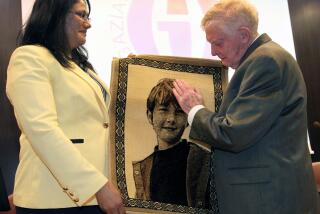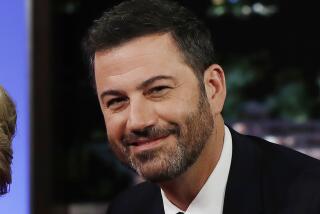Anonymous Donation Allows Santa Ana Infant Heart Surgery
A week-old baby born with a heart defect awaits surgery today after an anonymous donor paid $30,000 to send the Santa Ana infant, his parents and a four-member medical team to pioneering heart surgeons in Boston.
Before the donation, the parents had considered a rare infant-to-infant heart transplant at Loma Linda University Medical Center, where Dr. Leonard Bailey has performed a handful of such operations, including the transplant of a baboon’s heart on “Baby Fae,” who died 20 days later.
“We had better chances here (in Boston) than there. But since we didn’t have any money. . . . We’re poor people,” Mayela Rodriguez Orozco said Thursday night in a telephone interview from Children’s Hospital in Boston, where her child lay nearby in serious condition in the intensive care unit.
“We are saddened by everything that has happened. And very worried,” Orozco said in Spanish. “Now, it’s in God’s hands.”
The baby was born Jan. 23 at Chapman General Hospital in Orange and taken to Martin Luther Hospital Medical Center in Anaheim.
Karen Bottom, neonatal unit assistant director at Martin Luther Hospital, said a transplant was possible, but that it was not the first option. And Betty Bartley, spokeswoman for the hospital, said: “The chances of getting a suitable heart in time to save the baby were slim.”
So hospital staff members “got on the telephone and started calling,” Bartley said. “Tuesday morning we knew we had to do something, or try to do something, to save this baby.”
On Wednesday, the baby, who does not yet have a name, arrived in Boston with his parents, a doctor, two nurses and a respiratory therapist.
The child’s chances for survival are much greater today than they would have been in 1979 or 1980, when there was a 97% or 98% fatality rate in such cases, said Dr. Leonard Fox of Martin Luther Hospital.
Method Pioneered
The Boston hospital is one of a few in the country that specializes in the relatively new surgery to correct hypoplastic left heart syndrome, the heart condition which afflicted “Baby Fae,” as well as “Baby Moses” and “Baby Eve,” who received human heart transplants. Both Baby Moses, born last November, and Baby Eve, born last week, have survived.
At the Boston hospital, doctors have pioneered another method of treating the heart condition. Hypoplastic left heart syndrome prevents the side of the heart that pumps blood to the body from fully developing.
The surgery involves re-rooting some of the blood vessels so that the right ventricle pumps blood to the body as well as to the lungs, Judd said. Normally, the right ventricle pumps oxygen-depleted blood to the lungs while the left ventricle pumps oxygen-rich blood to the rest of the body.
Since 1979, the Boston doctors have performed 110 such operations, hospital spokeswoman Sandy Judd said.
Survival Chances
The operation, which a team of doctors is scheduled to begin at noon today, is the first in a two-stage phase that the Orozco child will face, Judd said. The baby has a 65% chance of leaving the hospital and about a 50% chance of surviving past the first year, she said.
Statistics on the baby’s chances of survival after the second operation, which probably will be in a few years, are not available because the treatment is so new, Judd said. The second operation has been performed six times. Two patients have survived, Judd said.
Mayela Orozco and her husband, Oscar Louis, originally from Mexico, also have a 3-year-old daughter. Another son died of unknown causes shortly after birth, Mayela Orozco said.
Orozco said she works in electronics and her husband in auto mechanics. The family has lived in Santa Ana for about seven years.
While one hospital spokeswoman said an insurance company will cover the medical costs, Orozco said she was not sure of the extent of their coverage.
As they awaited the morning and their son’s surgery, however, her concern was about her son’s health. “We have hope that God will help us.”
More to Read
Sign up for Essential California
The most important California stories and recommendations in your inbox every morning.
You may occasionally receive promotional content from the Los Angeles Times.









